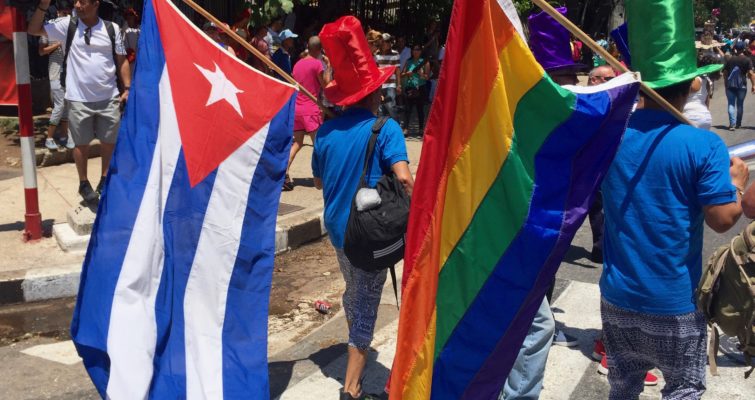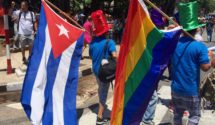
Battle for marriage equality in Cuba
I had a trip to Cuba last month, and I’m there again now. Things are heating up on the political scene. A bunch of evangelical churches have launched a campaign against marriage equality, and the LGBTIQ community and allies are working to organize support too.
I just read a declaration from Cuban anti-racist activists, intellectuals, and projects, supporting marriage equality, criticizing the fundamentalist campaigns that further marginalize LGBTIQ people, and relating this to historic racism and its effects on people/communities of color. It’s so beautifully done, I’m feeling inspired to translate it.
I’m also inspired because activism in Cuba is not an easy thing to do. Independent political organizing is forbidden, there’s no free press, and many Cubans who want to raise their voices this way are treading new-ish, risky ground. Like many of us from the U.S., I value freedom of expression, association, the press, and political protest. So I appreciate all those fighting for it.
I saw this published at Negra Cubana Tenía Que Ser, “It Had to Be a Black Cuban Woman.” This is the blog of activist Sandra Abd’Allah-Alvarez Ramírez, one of the organizers of the declaration. Not sure where else it was published.
NB: Article 68 is the proposed revision to the Cuban Constitution that would establish marriage as a gender-neutral legal structure.
In the current context of debate on the Draft Constitution of the Republic of Cuba, we’ve been witnessing the surge of fundamentalist discourses that – coming from conservative sectors of the evangelical churches and from a segments of the Catholic Church in Cuba – center their attacks on non-heteronormative gender and sexual identities, gender fluid or gender non-conforming, as well as homosexuality, lesbianity, and trans, queer, and feminist activism.
In this sense, declarations have been shared with a marked apocalyptic tone, using pseudoscientific arguments, which intentionally promote fear and disinformation. Such fundamentalist positions have been spread on social networks and in the public space, especially in the worship services and religious ceremonies of certain congregations.
We oppose the use of strategies that, instead of promoting the exchange of arguments, use antiquated ideas, and coin terms – such as “the gender ideology” – to confuse and foment a discourse of hate.
We understand that the free choice of marriage between human beings, without regard to sexual identity, gender identity, gender, or sexual orientation, whose participants are guided by love, commitment, and respect, is unarguably a human right.
We also recognize the consequences of racism and know the pain and suffering that racial discrimination creates in the lives of people and communities. Throughout our lives – as private individuals, professionals, and activists – we have received support in solidarity from many people, which has helped us to resist and continue together generating anti-racist thoughts, attitudes, actions and projects.
It is for this reason that:
- We support Article 68 because, beyond its legal connotations, it constitutes a recognition of human diversity, inclusion, and the fight against discrimination.
- We condemn the public actions of the evangelical churches because they lead to stigmatization, subordination, exclusion, and the denial of a basic human right, which Article 68 tries to restore.
- We warn that the failure to approve Article 68 would contradict Article 40 of the revised Constitution of the Republic of Cuba, which recognizes the equality of Cuban citizens under the law.
- We stand in solidarity, support, and actively participate in the activist actions that different groups and projects are performing in the public sphere, such as “68Va,” “For Marriage Equality in Cuba,” “A Possible Cuba,” “Building an agenda of sexual diversity in Cuba,” “Opening Gaps of Colors,” the Metropolitan Community Church in Cuba (ICM), OAR, The Center of Reflection and Dialogue of Cárdenas, the Community Social Networks of CENESEX, I Accept, The Mejunje, and other institutions, media organizations, and initiatives.
In closing, we call for:
Creating more dialogue and seeking meeting points.
Supporting the protection and equality under the law of Cuban citizens.
Multiplying solidarity and rejecting discrimination.
November, 2018




1 Comment